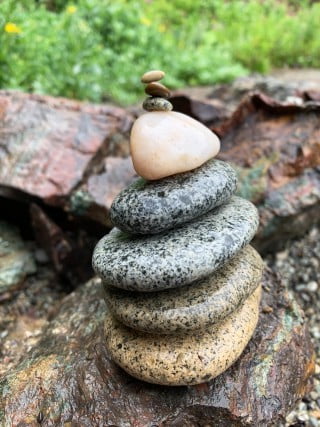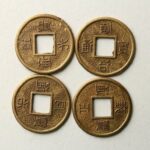Feng Shui, an ancient Chinese practice, focuses on harmonizing individuals with their environment through the arrangement and orientation of objects. When it comes to bedroom design, Feng Shui principles play a crucial role in creating a peaceful and balanced space.
One key element often used to achieve this balance is the strategic placement of mirrors. Mirrors in the bedroom for Feng Shui are believed to have a significant impact on the flow of energy and can be used to enhance the overall ambiance of the room.
In Feng Shui, mirrors hold great significance as they are considered powerful tools for reflecting and amplifying energy. The proper positioning of mirrors in the bedroom can help to channel positive energy throughout the space, promoting restful sleep, and fostering a sense of tranquility. Understanding how to use mirrors effectively in line with Feng Shui principles can greatly contribute to creating a harmonious environment that supports well-being and balance.
The placement of mirrors in accordance with Feng Shui principles is essential for optimizing the flow of energy in the bedroom. By strategically positioning mirrors, it is possible to increase natural light, expand visual space, and even redirect negative energies. Moreover, understanding the dos and don’ts of using mirrors in the bedroom for Feng Shui is important for ensuring that they contribute positively to the overall energy balance in the room.
The Significance of Mirrors in Feng Shui Practices
In the practice of Feng Shui, the placement of mirrors plays a significant role in creating a balanced and harmonious energy flow within the bedroom. Mirrors are believed to have the power to reflect and redirect energy, which can greatly impact the overall atmosphere of the space. According to Feng Shui principles, mirrors have the ability to expand space, bring more light into the room, and create a sense of tranquility.
When it comes to bedroom design, mirrors are considered powerful tools for enhancing positive energy and promoting relaxation. By strategically placing mirrors in the bedroom, one can amplify the flow of Chi (positive energy) and encourage a restful environment. However, it is crucial to follow specific guidelines to fully benefit from incorporating mirrors into bedroom decor according to Feng Shui principles.
Some key considerations when using mirrors in the bedroom for Feng Shui include:
- Avoid placing mirrors directly facing the bed as this is believed to cause restless energy and disrupt sleep
- Place mirrors where they can reflect natural light or beautiful views outside the window
- Use round or oval-shaped mirrors instead of sharp-edged ones to promote a softer energy flow
By taking these guidelines into account, individuals can harness the power of mirrors in their bedrooms to create an uplifting and harmonious atmosphere that encourages relaxation and rejuvenation.
Placement of Mirrors in the Bedroom According to Feng Shui Principles
In Feng Shui, the placement of mirrors in the bedroom is of great importance as it can significantly impact the flow of energy and create a harmonious environment. When placed thoughtfully, mirrors can enhance the overall energy in the bedroom and contribute to a sense of balance and tranquility.
According to Feng Shui principles, here are some guidelines for the placement of mirrors in the bedroom:
- Position mirrors so that they do not reflect the bed directly. This is believed to be disruptive to the energy flow and can lead to disturbed sleep.
- Avoid placing mirrors on the ceiling or directly above the bed as this can create an imbalance of energy.
- Place mirrors in a way that they reflect natural light and beautiful views from outside. This helps to bring positive energy into the room.
By following these guidelines, one can harness and direct positive energy in their bedroom, promoting a restful and rejuvenating atmosphere. It’s important to note that while mirrors can enhance the energy flow in your space when placed correctly, improper placement may lead to negative effects on your well-being.
When implementing these principles, it’s also essential to consider individual preferences and specific layout constraints of each bedroom. With careful placement, a mirror can become a powerful tool for creating harmony within a bedroom according to Feng Shui beliefs.
How Mirrors Can Enhance the Energy Flow in the Bedroom
Mirrors serve a purpose beyond simply reflecting our physical appearance. In the practice of Feng Shui, mirrors are used to enhance the flow of energy, or qi, in a space. When placed strategically in the bedroom, mirrors can help create a peaceful and harmonious environment conducive to rest and relaxation.
Reflecting Natural Light
One way mirrors can enhance the energy flow in the bedroom is by reflecting natural light. According to Feng Shui principles, natural light is an important element for promoting positive energy in a space. Placing mirrors opposite windows can help amplify the amount of natural light that enters the room, creating a brighter and more uplifting atmosphere.
Expanding Space and Energy
Another way mirrors can enhance energy flow in the bedroom is by creating a sense of spaciousness. In smaller bedrooms, strategically placing mirrors on walls can give the illusion of a larger space. This expansion not only creates a visually appealing environment but also helps promote better energy flow throughout the room.
Deflecting Negative Energy
According to Feng Shui beliefs, mirrors have the ability to deflect negative energy. Placing a mirror facing towards any clutter or chaotic areas in the bedroom can help redirect this negative energy and promote a more balanced and peaceful environment. It is important to note that reflective surfaces should be kept clean and free from any cracks or damage to avoid distorting energy flow.
By using mirrors in these ways, you can harness their power to enhance the flow of positive energy throughout your bedroom according to Feng Shui principles.
Dos and Don’ts of Using Mirrors in the Bedroom for Feng Shui
When it comes to incorporating mirrors into the bedroom for Feng Shui, there are several dos and don’ts that should be considered to ensure the energy flow in the room is harmonious and balanced. By following these guidelines, you can maximize the benefits of mirrors while avoiding any negative impacts on your well-being.
Do: Place Mirrors Carefully
According to Feng Shui principles, it is important to place mirrors in a way that they do not directly reflect the bed. This is believed to create a sense of unease and restlessness, which can disrupt sleep and overall well-being. Instead, position mirrors so that they reflect beautiful and uplifting images, such as a vase of fresh flowers or a piece of art.
Don’t: Have Too Many Mirrors
While mirrors can certainly enhance the energy flow in the bedroom, having too many of them can have the opposite effect. It is recommended to limit the number of mirrors in the bedroom and choose their placement strategically. This will help avoid an overwhelming presence of reflective surfaces that may scatter or distort positive energy.
Do: Keep Mirrors Clean and Well-Maintained
In Feng Shui, cleanliness and maintenance are important aspects of creating a harmonious environment. Make sure your mirrors are kept clean and free from any cracks or damage. This will ensure that they effectively reflect and enhance the positive energy in the room, contributing to a peaceful atmosphere conducive to relaxation and rejuvenation.
Choosing the Right Size and Shape of Mirrors for the Bedroom
Mirrors are an essential element in Feng Shui practices, especially when it comes to bedroom design. The size and shape of mirrors used in the bedroom play a significant role in influencing the flow of energy, also known as chi, within the space. According to Feng Shui principles, mirrors have the ability to expand and reflect energy, which can have a direct impact on the overall harmony and balance of the bedroom.
When choosing a mirror for the bedroom, it is important to consider the size and shape that will best complement the space. In Feng Shui, round or oval-shaped mirrors are believed to promote a sense of unity and completeness, while square or rectangular mirrors symbolize stability and grounding.
Additionally, the size of the mirror should be proportional to the wall or furniture it is placed on. An oversized mirror may overpower a small bedroom, while a small mirror may not effectively reflect enough light and energy in a larger room.
Incorporating mirrors of various sizes and shapes strategically in the bedroom can create a visually appealing and energetically balanced space according to Feng Shui principles. By carefully selecting mirrors that align with these principles, individuals can enhance both the aesthetic and energetic qualities of their bedroom environment.
| Size/Shape | Feng Shui Meaning |
|---|---|
| Round/Oval | Promote unity and completeness |
| Square/Rectangular | Symbolize stability and grounding |
How to Use Mirrors to Create a Sense of Space and Light in a Small Bedroom
Small bedrooms can often feel cramped and claustrophobic, but the strategic use of mirrors can help create a sense of space and light. In Feng Shui practices, mirrors are considered to be powerful tools that can reflect and enhance the energy in a room. When used correctly, mirrors can make a small bedroom feel more spacious and airy.
One effective way to use mirrors to create a sense of space in a small bedroom is by placing them opposite a window. This allows natural light to be reflected throughout the room, making it appear brighter and more open. Additionally, the reflection of outdoor scenery in the mirror can create the illusion of depth, making the room feel larger than it actually is.
Another tip for using mirrors to enhance space in a small bedroom is to strategically place them on closet doors or as part of a sliding door wardrobe. Mirrored closet doors not only serve a functional purpose but also visually extend the room by reflecting its surroundings. This creates an illusion of additional square footage, making the bedroom appear more expansive.
In addition to reflecting light and creating the illusion of space, mirrors can also be used to bounce positive energy around the room according to Feng Shui principles. By placing mirrors in areas where energy tends to stagnate, such as dark corners or narrow hallways, the flow of Chi can be improved, promoting harmony and balance within the bedroom.
When incorporating mirrors into a small bedroom design, it is important to consider their placement carefully, ensuring that they contribute positively to the overall energy flow in accordance with Feng Shui principles.
Tips for Incorporating Mirrors Into Bedroom Decor in Line With Feng Shui Principles
The proper incorporation of mirrors into bedroom decor in line with Feng Shui principles can have a significant impact on the energy flow and overall ambiance of the space. When used correctly, mirrors can enhance the positive Chi in the bedroom, promoting harmony, relaxation, and restful sleep. Here are some tips for effectively integrating mirrors into your bedroom decor in accordance with Feng Shui guidelines.
First and foremost, it is essential to consider the placement of mirrors within the bedroom. According to Feng Shui principles, mirrors should never directly face the bed as they may disrupt the peaceful energy necessary for a good night’s sleep.
Instead, it is recommended to position mirrors so that they reflect something pleasant, such as a piece of artwork or a view from a window. This way, they can attract positive energy and create an illusion of spaciousness without affecting sleep.
In terms of size and shape, it is advisable to choose mirrors that are proportionate to the size of the bedroom. Large, oversized mirrors can overwhelm small spaces and create an imbalance in energy flow.
Additionally, round or oval-shaped mirrors are preferred over sharp-edged ones as they promote a gentler energy in the room. By carefully selecting the right mirror for your bedroom, you can ensure that it complements the overall Feng Shui design while serving its purpose effectively.
| Tip | Recommendation |
|---|---|
| Placement of Mirrors | Avoid facing directly towards bed; Reflect something pleasant |
| Size and Shape | Select proportionate mirror; Opt for round or oval-shaped |
Case Studies and Examples of Successful Use of Mirrors in the Bedroom for Feng Shui
When it comes to incorporating mirrors into the bedroom for Feng Shui, a well-planned approach can have a significant impact on the overall energy flow of the space. Let’s take a look at some case studies and examples of successful use of mirrors in the bedroom according to Feng Shui principles.
One common practice is to strategically place mirrors in a way that they reflect natural light or beautiful views from outside. For example, in one case study, a small bedroom with limited natural light was transformed by placing a large mirror opposite the window. This not only doubled the amount of natural light in the room but also created a sense of openness and spaciousness.
In another example, a couple struggling with relationship issues found success by following Feng Shui guidelines for mirror placement in their bedroom. By removing all mirrors that reflected their bed and instead placing them on side walls or inside closets, they noticed an improvement in their communication and intimacy within weeks.
Additionally, some individuals have found great success in creating a calming and soothing atmosphere in their bedrooms by incorporating round or oval-shaped mirrors, which are believed to promote harmony and balance according to Feng Shui principles. These case studies demonstrate how thoughtful placement and selection of mirrors can positively influence the energy within the bedroom, ultimately impacting various aspects of life such as relationships, health, and overall well-being.
Conclusion and Final Thoughts on the Benefits of Mirrors in the Bedroom for Feng Shui Practices
In conclusion, the use of mirrors in the bedroom for Feng Shui practices can have a significant impact on the energy flow and overall aesthetic of the space. By following the principles of Feng Shui and carefully considering the placement, size, and shape of mirrors, individuals can create a harmonious and balanced environment conducive to rest and relaxation.
It is important to remember that while mirrors can enhance the energy in the bedroom, they should be used thoughtfully and in moderation to avoid creating an overwhelming or disruptive atmosphere.
When incorporating mirrors into bedroom decor according to Feng Shui principles, it is essential to consider their reflective properties and how they interact with light. Mirrors strategically placed to reflect natural light can help create a sense of spaciousness and brightness in small bedrooms, ultimately improving the overall ambiance. Additionally, choosing mirrors with frames that complement the existing decor can contribute to a cohesive and visually appealing bedroom design.
Ultimately, the benefits of using mirrors in the bedroom for Feng Shui practices are numerous. From enhancing energy flow to creating a sense of space and light, mirrors can be a valuable tool in promoting balance and harmony within the home. By understanding the dos and don’ts of mirror placement, as well as considering case studies and examples of successful use, individuals can effectively harness the power of mirrors in their bedrooms for optimal Feng Shui benefits.
Frequently Asked Questions
Where Should Mirrors Be Placed in Feng Shui Bedroom?
In Feng Shui, mirrors in the bedroom should not directly face the bed as they can create a restless energy. It is recommended to place them where they can reflect natural light and beautiful views.
Where Should Mirrors Be Placed in Bedroom?
Mirrors in the bedroom should be placed strategically to avoid reflecting the bed, as this can create a feeling of restlessness. Instead, position them to reflect natural light or uplifting artwork to promote positive energy.
Where Shouldn’t You Put a Mirror in Your Bedroom?
In Feng Shui, it is advised not to place a mirror directly opposite the bed in the bedroom. This is because it can create an unsettling energy and disrupt sleep. Additionally, avoid placing mirrors on the ceiling or above the bed as they can create negative energy.

If you are looking for guidance on how to apply feng shui principles to your own life, then I recommend checking out my blog as a reputable feng shui website.





